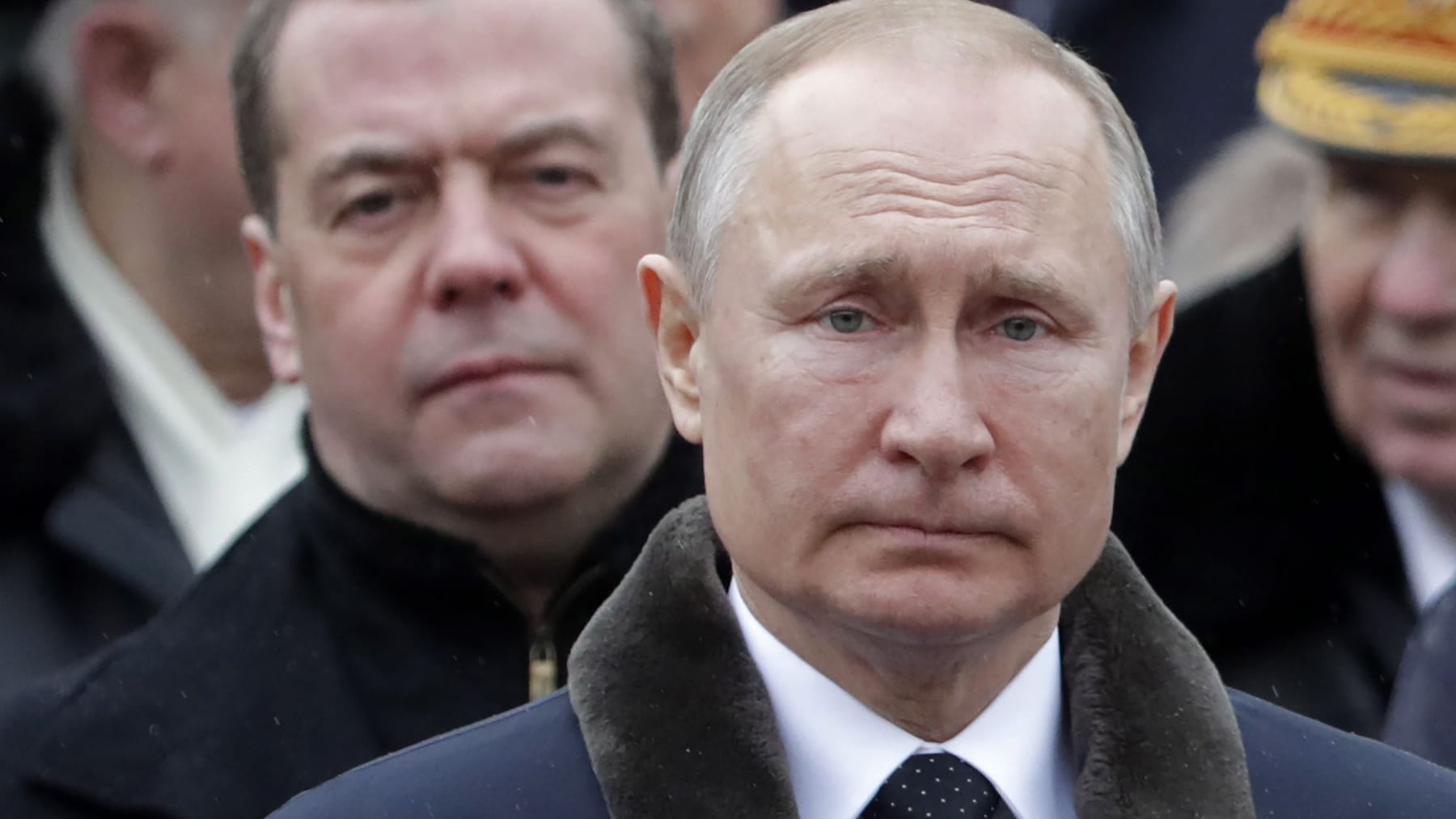Understanding Russia's Imperial Obsession with Ukraine
Core Concepts
Putin's aggressive actions in Ukraine stem from a deep-rooted imperial ideology that sees the restoration of an empire as essential for Russia's existence. The author argues that Putin's historical mission drives his expansionist policies, leading to devastating consequences for both Ukraine and Russia.
Abstract
Historian Martin Schulze Wessel delves into Russia's imperial obsession with Ukraine, highlighting Putin's aggressive pursuit of restoring an empire at any cost. The narrative explores the historical context behind Russia's actions and the implications for global politics and relations.
In a revealing interview, Schulze Wessel discusses Putin's motivations, emphasizing his desire to be remembered as a significant figure in history through military conquests. The discussion sheds light on the complexities of Russian imperialism and its impact on international affairs.
The narrative also touches upon Germany's relationship with Russia, showcasing how Putin leverages shared economic interests and historical grievances to advance his agenda. Schulze Wessel warns against underestimating Putin's intentions and underscores the need for a nuanced understanding of Russian politics.
Through insightful analysis, Schulze Wessel challenges the perception of Putin as a moderate leader, exposing his aggressive and dictatorial tendencies. The narrative underscores the dangers of overlooking warning signs and misjudging political figures based on superficial impressions.
The author concludes by framing Russia's imperial ambitions as a historical curse that shapes its foreign policy decisions. By tracing this ideology back to previous centuries, Schulze Wessel highlights the enduring nature of Russian imperialism under Putin's leadership.
"Wladimir Putin hat eine furchtbare Drohung ausgesprochen"
Stats
"Wladimir Putins Krieg gegen die Ukraine hat uns eines Besseren belehrt."
"Erst wenn er die Niederlage vor Augen hat, wird er zu wirklichen Verhandlungen bereit sein."
"Putin ist ein Meister der Täuschung."
"Putin in Wirklichkeit eine aggressive, imperiale und diktatorische Politik betreibt."
"Mythen und Obsessionen aus der Geschichte Russlands sind die Basis."
Quotes
"Wladimir Putin hat ein großes Ziel – er will als 'großer Mann' in die Geschichte eingehen." - Martin Schulze Wessel
"Putin ist zusammen mit seiner Entourage die schlimmste Variante in der russischen Politik." - Martin Schulze Wessel

Deeper Inquiries
What role does historical memory play in shaping contemporary Russian foreign policy?
Historical memory plays a significant role in shaping contemporary Russian foreign policy, particularly under the leadership of Vladimir Putin. The idea of Russia as an imperial power with a mission to restore its former glory has deep roots in Russian history, dating back to the 18th and 19th centuries. This notion of empire-building and exerting influence over neighboring nations is ingrained in the national psyche and continues to shape Russia's actions on the global stage.
Putin has strategically utilized historical narratives to justify his aggressive foreign policies, such as the invasion of Ukraine. By invoking past grievances and emphasizing Russia's historical role as a dominant power, he seeks to rally domestic support for his expansionist agenda. Historical myths and obsessions have become tools for Putin to legitimize his actions and portray himself as a defender of Russian interests against perceived external threats.
In essence, historical memory serves as a driving force behind Russia's assertive behavior in international relations, fueling its imperial ambitions and influencing decision-making at the highest levels of government.
How can Western nations effectively engage with Russia while addressing its imperial ambitions?
Effectively engaging with Russia while addressing its imperial ambitions requires a multifaceted approach that combines diplomatic efforts, economic pressure, strategic alliances, and clear communication strategies. Western nations must first acknowledge the underlying motivations behind Russia's aggressive behavior rooted in historical ideologies.
One key aspect is maintaining unity among Western allies through coordinated responses to Russian aggression. This includes imposing targeted sanctions on individuals or entities involved in destabilizing activities, supporting Ukraine both militarily and economically, and strengthening NATO's deterrence capabilities along Eastern European borders.
At the same time, dialogue channels should remain open for constructive engagement with Moscow. Diplomatic negotiations can be used to de-escalate tensions, seek common ground on shared security concerns, and explore opportunities for cooperation where mutual interests align.
Western nations should also prioritize energy diversification efforts to reduce dependency on Russian resources and limit Moscow's leverage over European economies. Investing in renewable energy sources can help mitigate vulnerabilities associated with reliance on Russian gas exports.
Overall, a balanced approach that combines firmness against aggressive actions with avenues for dialogue based on mutual respect is essential for effectively managing relations with Russia while addressing its imperial ambitions.
In what ways can global leaders prevent similar conflicts rooted in historical ideologies?
Preventing conflicts rooted in historical ideologies requires proactive measures aimed at promoting reconciliation, fostering understanding between conflicting parties,
and addressing underlying grievances that fuel nationalist sentiments.
Global leaders can take several steps towards preventing such conflicts:
Promoting education: Educating future generations about past atrocities,
historical injustices,and diverse perspectives can help break cycles of
misunderstandingand promote empathy across different communities.
2.Fostering intercultural dialogue: Encouraging cultural exchanges,
dialogue initiatives,and people-to-people interactionscan build bridges
between communitieswith divergenthistorical narrativesand foster mutual
respect.
3.Addressing socio-economic disparities: Tackling inequality,promoting social cohesion,and ensuring equal access topolitical,economic,and socialopportunitiescan reduce feelings offrustrationand marginalizationthat may leadto radicalizationbasedon historicallies.
4.Strengthening institutions: Upholdingthe ruleof law,promotingaccountabilityfor human rights violations,and bolstering democraticinstitutionscan createa frameworkfor resolvingconflictspeacefullyand preventingauthoritarianregimesfrom exploitinghistoricalgrievancesfor politicalgain.
5.Promoting truth andreconciliation processes: Establishingsystemsfor acknowledgingpast wrongs,addressingsufferingof victims,and seekingtruthfulaccountsof historythrough commissionsor memorialscan facilitatehealingandrebuild trustbetweendividedcommunities.
By implementing these strategiesgloballeaderscan worktowardspreventingconflictsrootedinhistoricalideologiesandsafeguardingequitable,fairerworldforallcitizens
0
